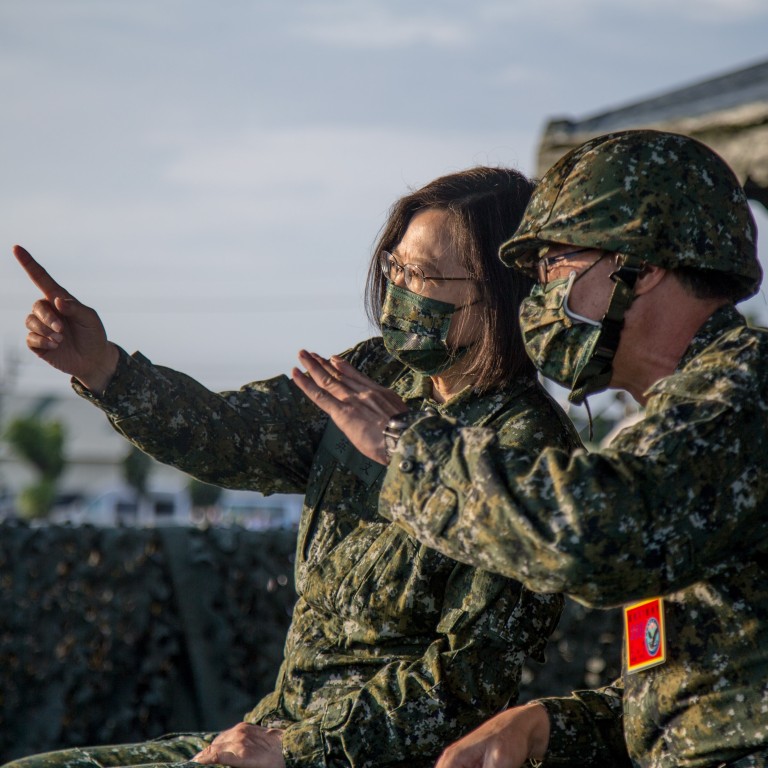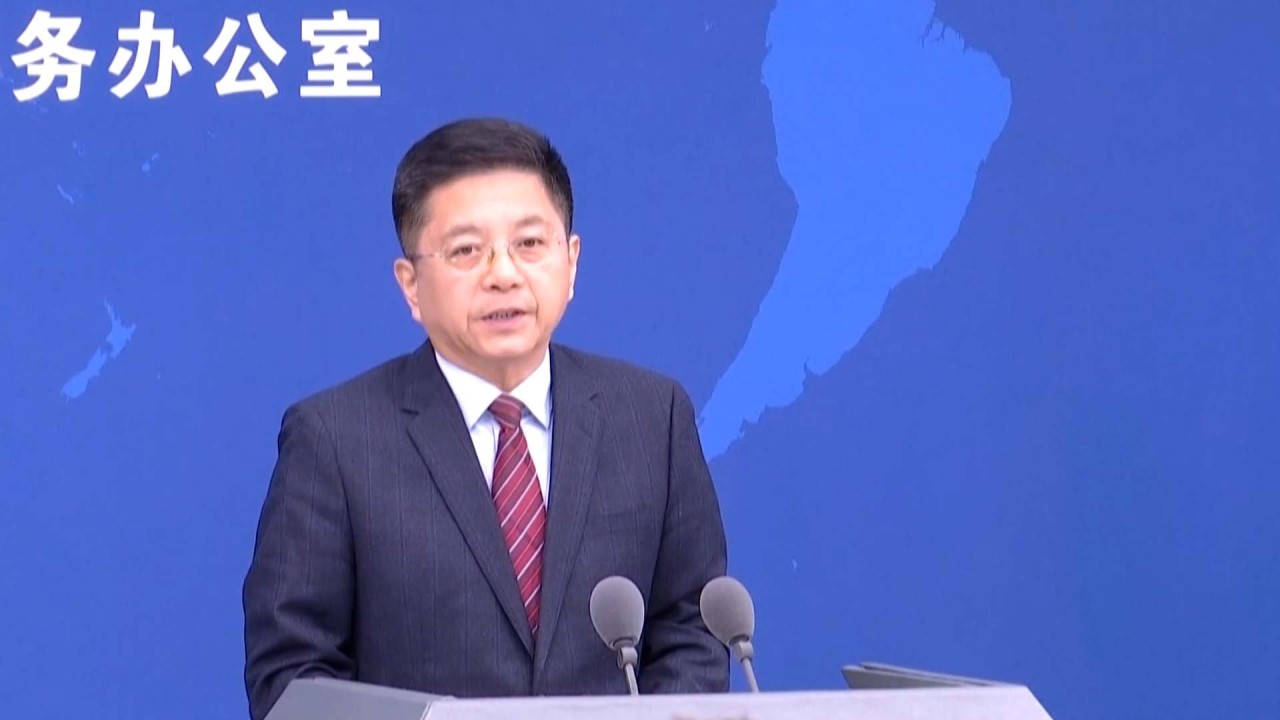
US military presence in Taiwan an ‘open secret’ for decades
- Last week’s revelation by Tsai Ing-wen broke 40 years of a ‘tacit mutual understanding’ between Beijing and Washington
- US military personnel have been deployed to the island as ‘advisers’ since diplomatic ties with Taipei ended in 1979, analysts said
Beijing was aware that the United States had deployed some military personnel to Taiwan as liaison officers since 1980 – in the aftermath of 1979’s end to diplomatic ties between Washington and Taipei – for unofficial defence exchanges, a Beijing-based military source said.
Beijing accuses US of ‘sabotaging’ Taiwan Strait peace
“The mainland realised that the US has kept about one dozen low-ranking military officers under the official title of ‘advisers’ in Taiwan after the 1980s,” said the source, who requested anonymity because of the issue’s sensitivity.
“The group of US military officers is operating like a liaison team to take care of defence operations between Washington and Taipei, such as helping with training, which is supposed to be a strategic tacit mutual understanding between Washington and Beijing.”
Washington switched diplomatic recognition from Taipei to Beijing in 1979, but the US retains cultural, commercial and other unofficial relations with the self-ruled island under three joint communiques signed by Beijing and Washington in the 1970s and early 1980s.
Under the Taiwan Relations Act, the US is committed to providing the island with security and self-defence support, which includes selling arms to Taipei, despite Beijing’s opposition.
According to the source, Beijing was also aware of another group of US marines stationed on the island to maintain security of the American Institute in Taiwan (AIT), Washington’s de facto embassy, but they were not incumbent US military officers.
Asked about US defence of Taiwan, Blinken repeats commitment to weapons sales
Professor Lin Chong-Pin, a former Taiwanese deputy defence minister, said the deployment of US marines to AIT, as well as their military engagements with Taiwanese officers, had been open secrets for decades.
“It’s not a big deal at all. Sometimes the US would send military personnel to help train Taiwan’s military, that could be part of their post-sale service for arms sales, or sometimes just pure training assistance,” Lin said. “There was a consensus that none of the American officers would wear uniforms in Taiwan.”
While the deployments were not made public, Beijing made little protest. But that changed with Tsai’s public confirmation of the arrangement last week, pushing Beijing to make a tougher response and warn the US against giving the “wrong signal” to Taiwan pro-independence groups.
Tensions between Beijing and Washington over Taiwan were already running high, following support from US diplomats – including Secretary of State Antony Blinken – for Taiwanese participation in international organisations.

01:15
China insists Taiwan has no right to join United Nations
Drew Thompson, a former US Defence Department official who managed relations with mainland China, Taiwan and Mongolia, said US arms sales would include training and support, not just hardware. “Recent revelations in the media that it is occurring do not indicate any change in the status quo. The only new development in this issue is Beijing’s politically-motivated outrage.”
The mainland military source said the breaking of more than 40 years of tacit assumption was a “politically-motivated attempt to provoke the mainland authorities’ bottom line”.
“Making the strategic tacit mutual understanding a public acknowledgement was aimed at turning such a consensus to a political issue,” the source said. “The move has further complicated the relationship between the US and China, Beijing and Taipei, as well as Washington and Taiwan.”
On Monday, the Taipei-based United Daily News reported that the US is expected to deploy a new “special operation cooperation team” to the island, led by an army major and lieutenant colonel, for training assistance. It said the deployment would become a regular US military-assisted training establishment stationed in Taiwan.
The report said the team could not be called “a troop” because it would not help with the island’s military defence. The deployment was pushed by Taiwan army commander General Hsu Yen-pu’s visit to Washington last month for the Association of the US Army’s annual meeting, it said.
On Friday, the new AIT head Sandra Oudkirk told Taiwanese reporters that ties between Washington and Taipei were “rock solid”, and highlighted that such relationships “are grounded in a commitment” in accordance with the Taiwan Relations Act.

